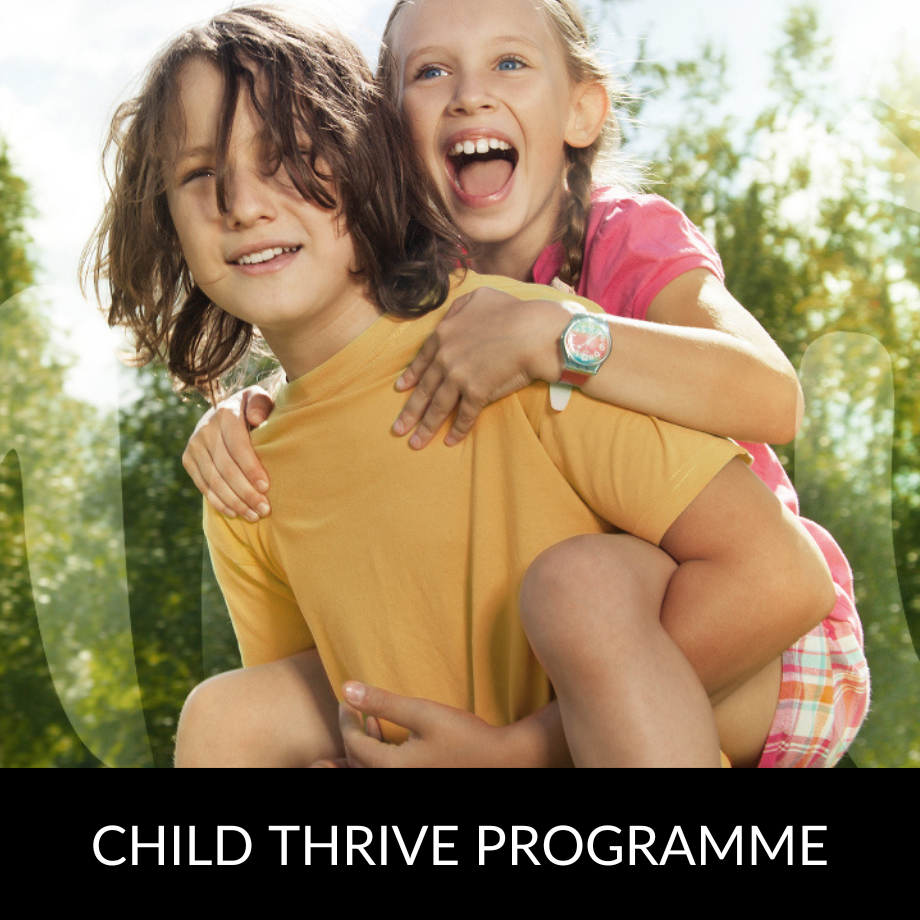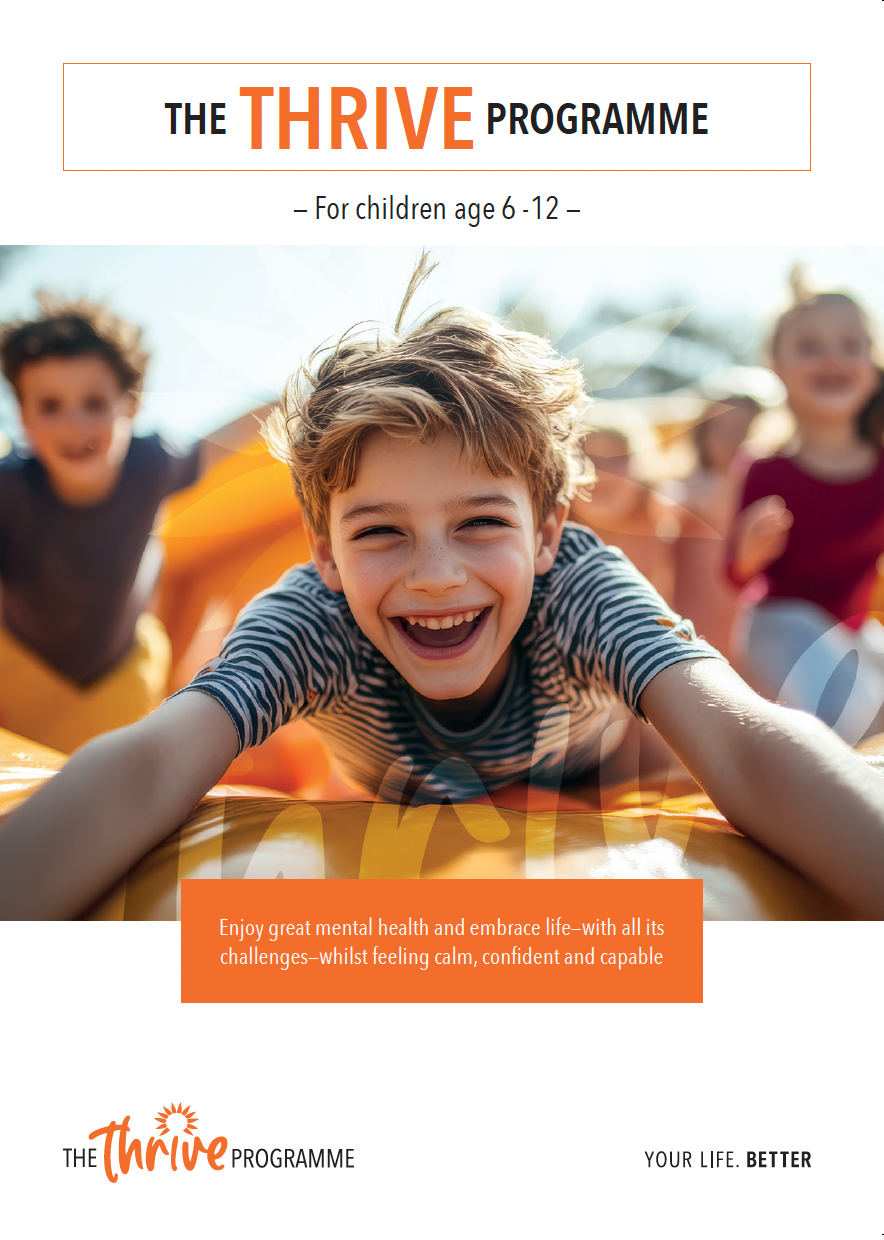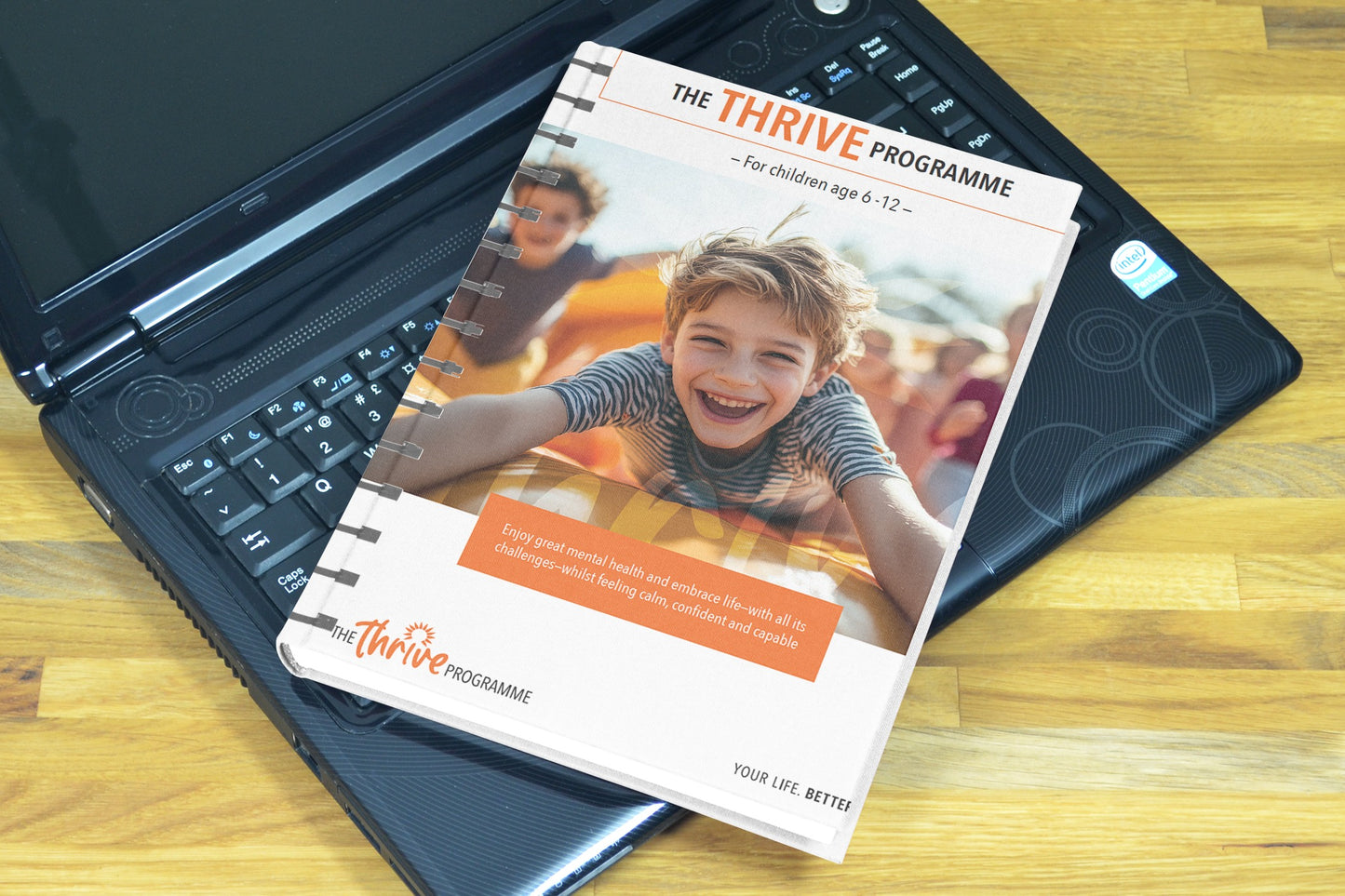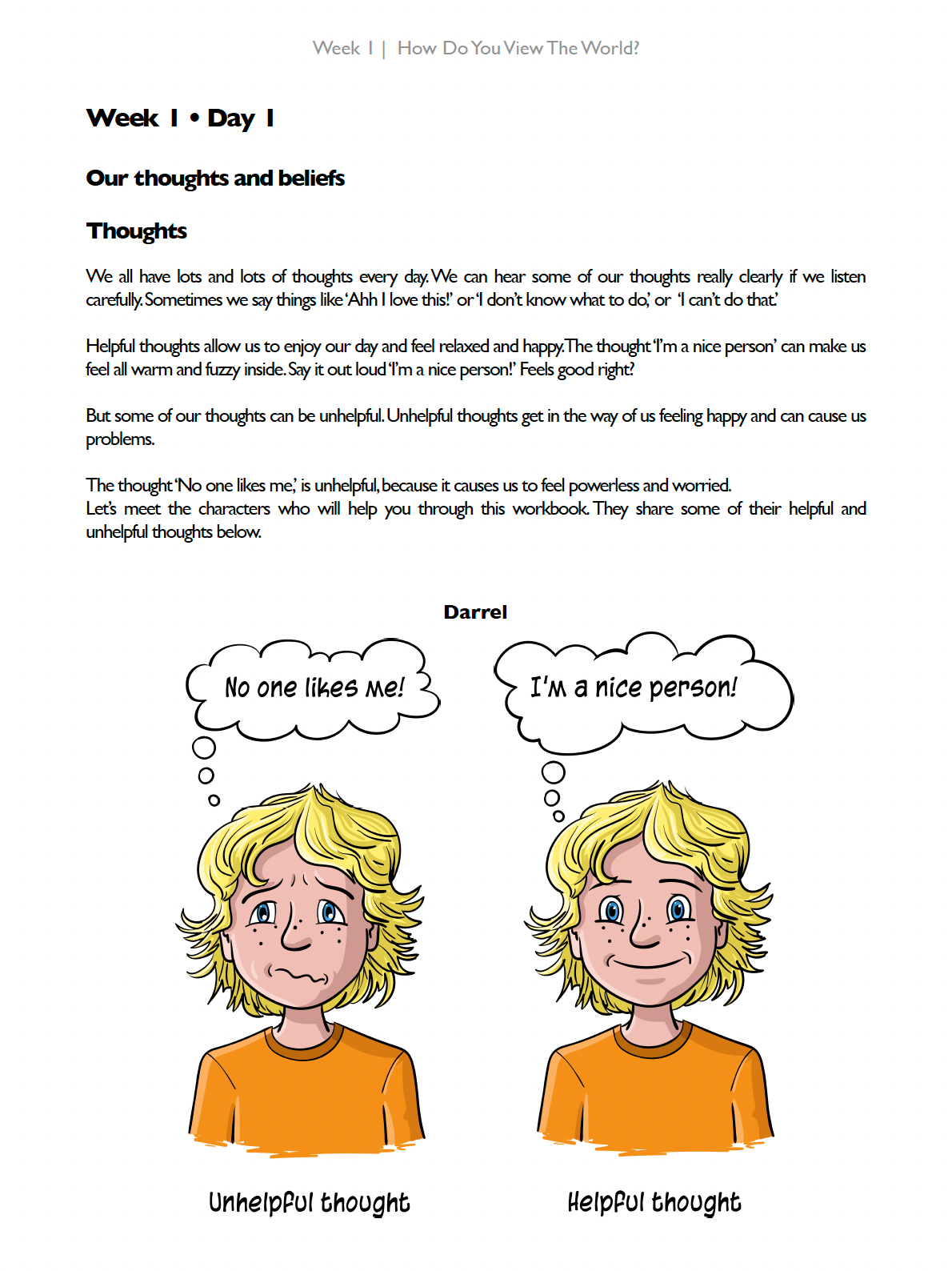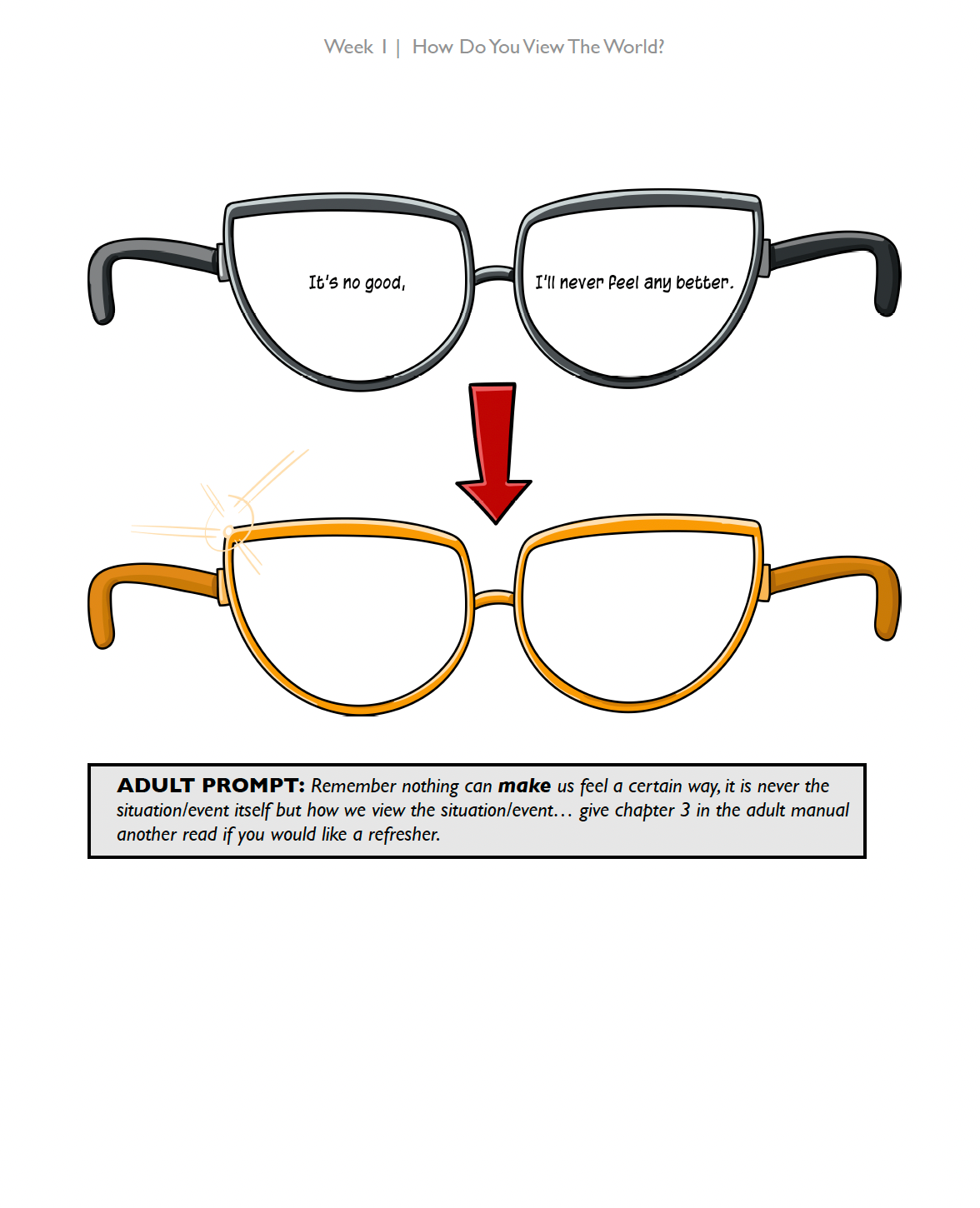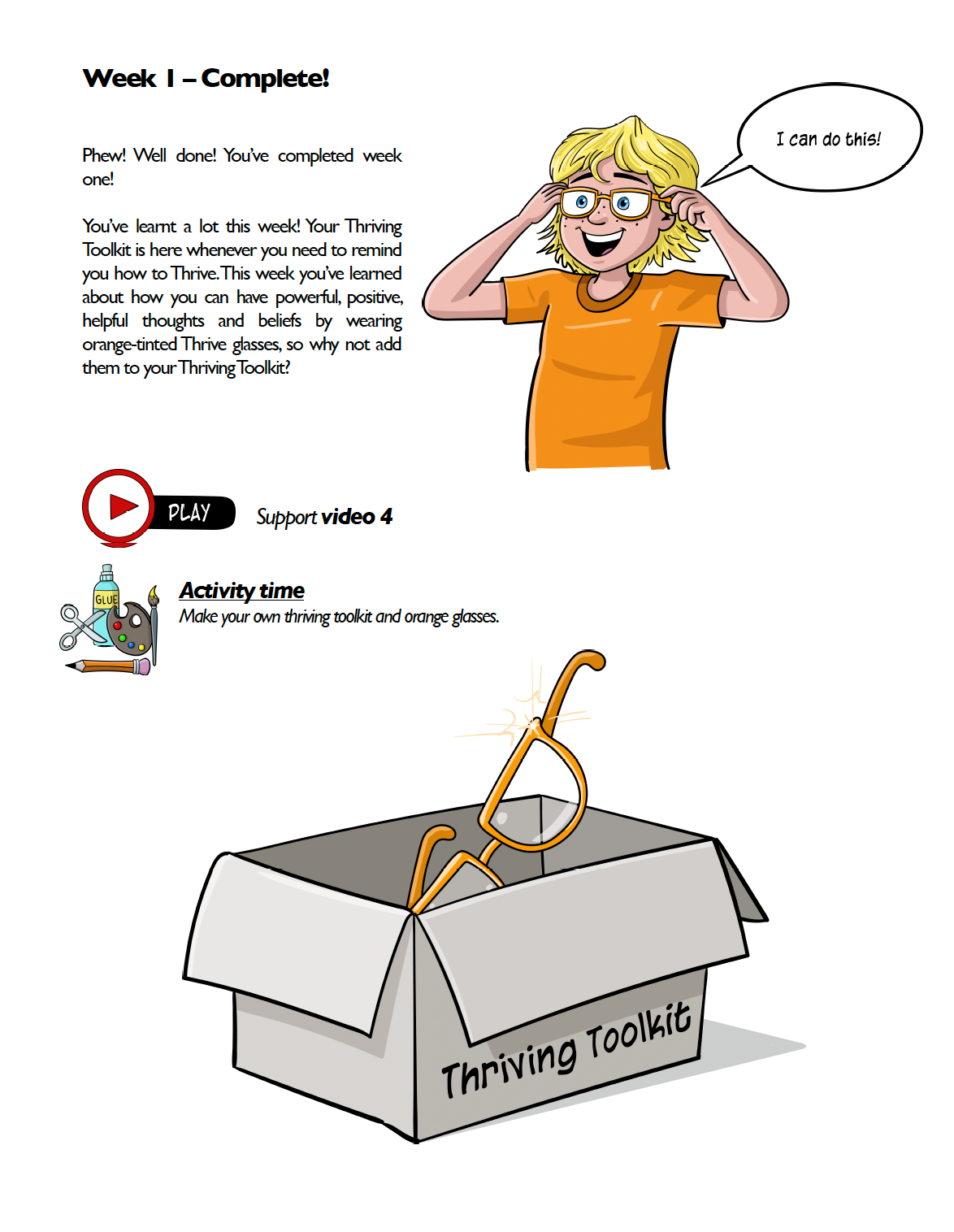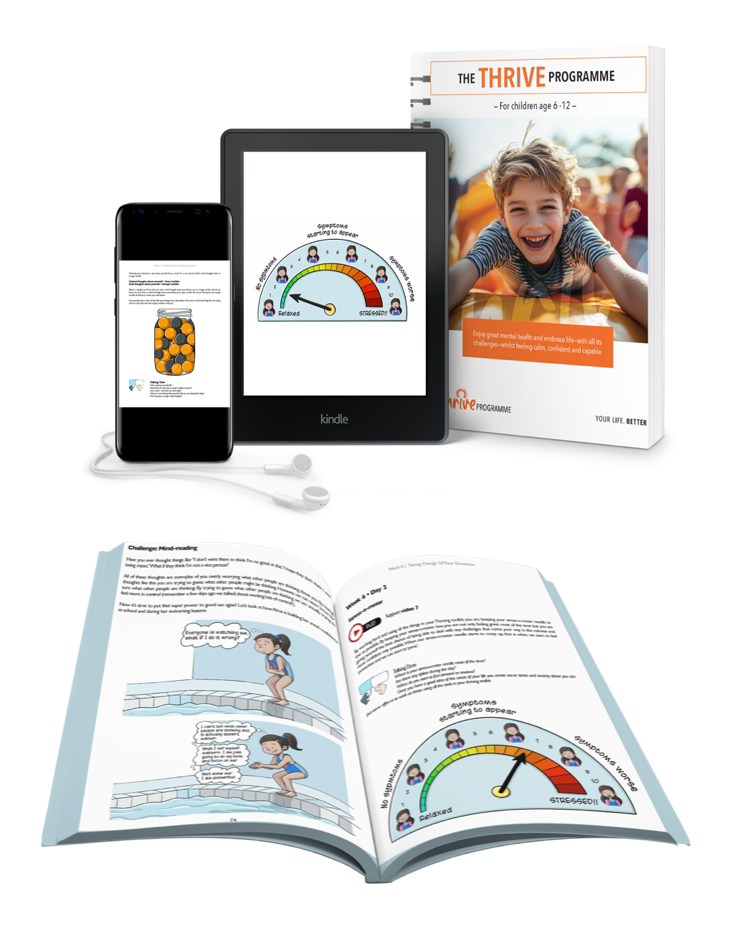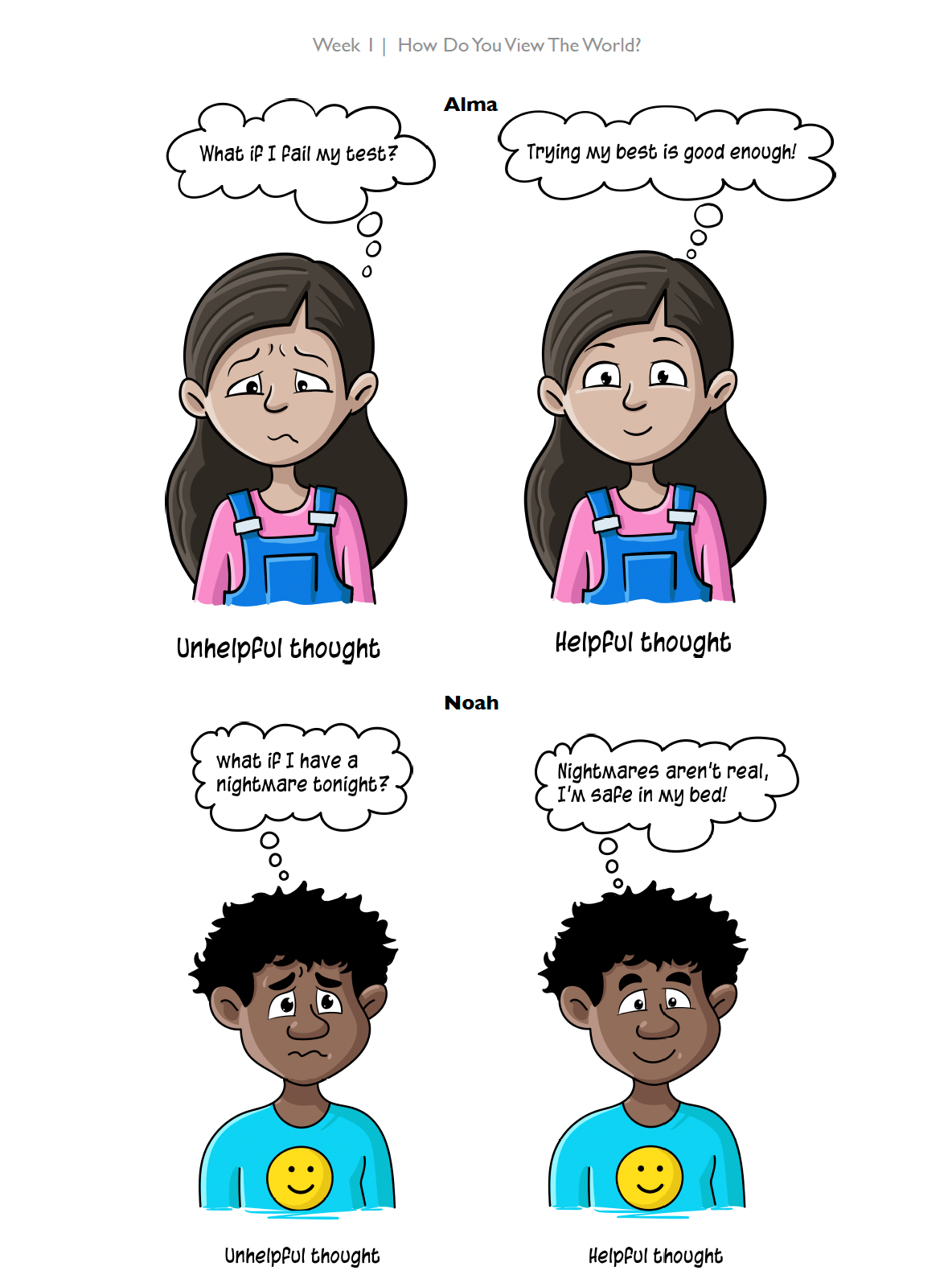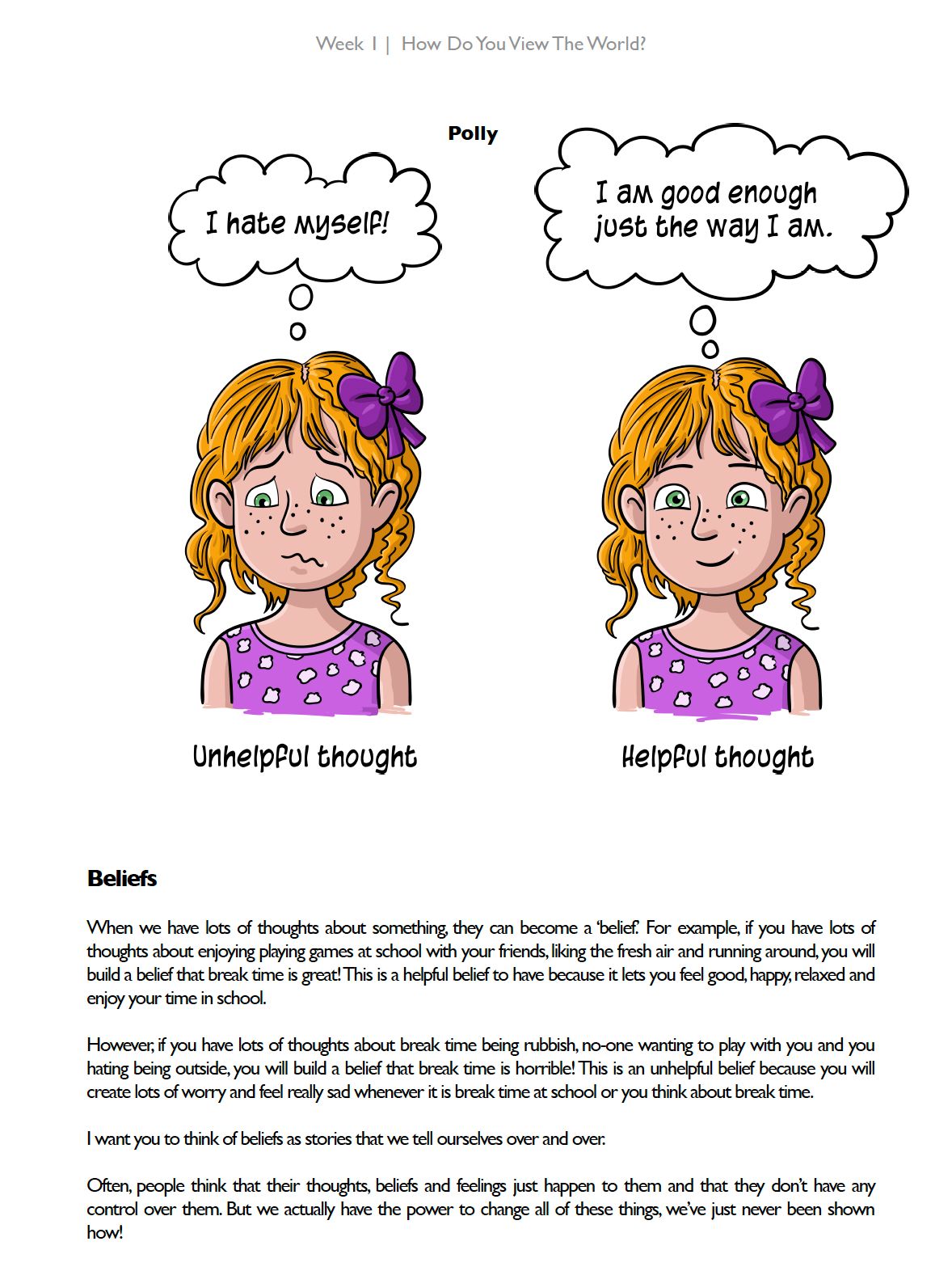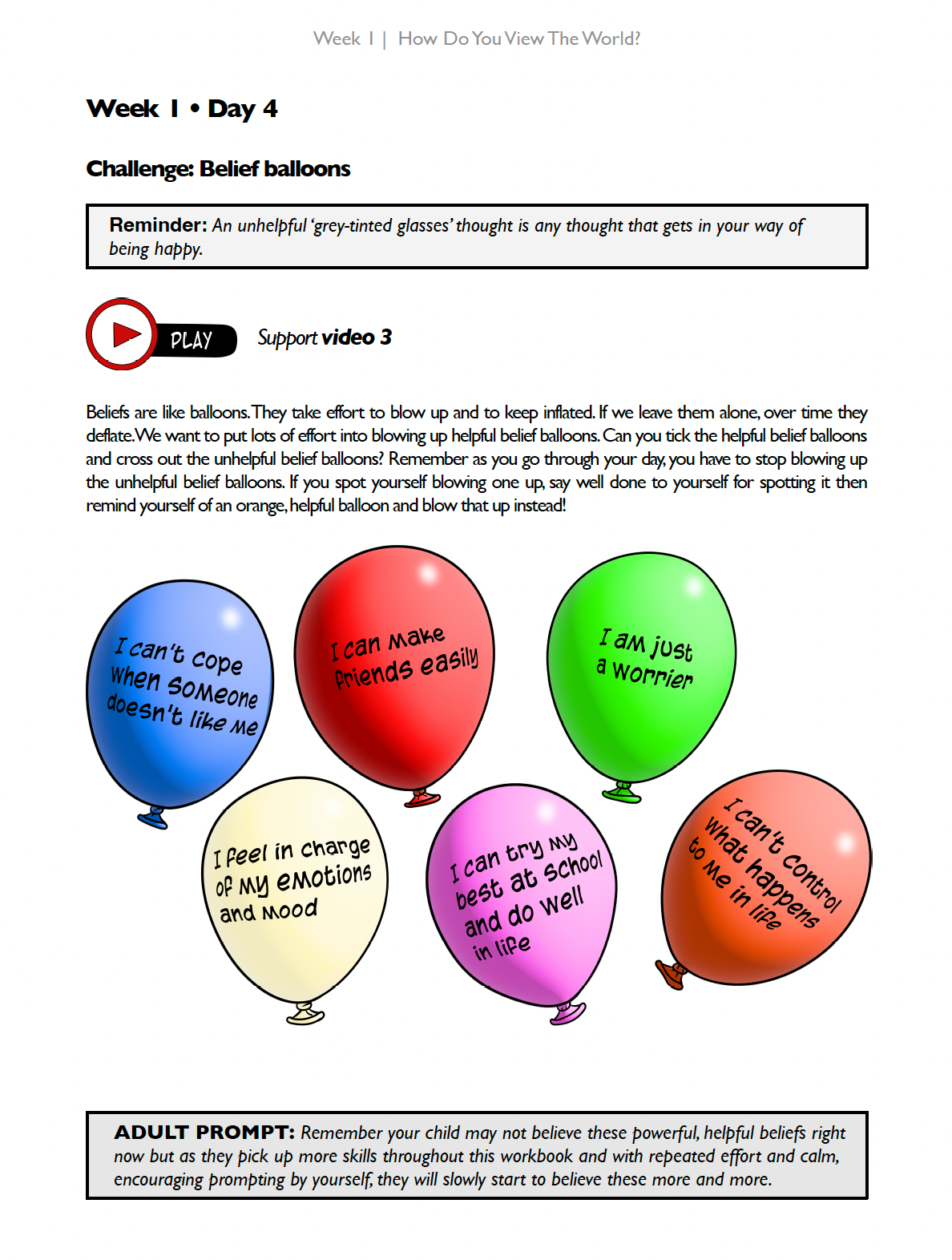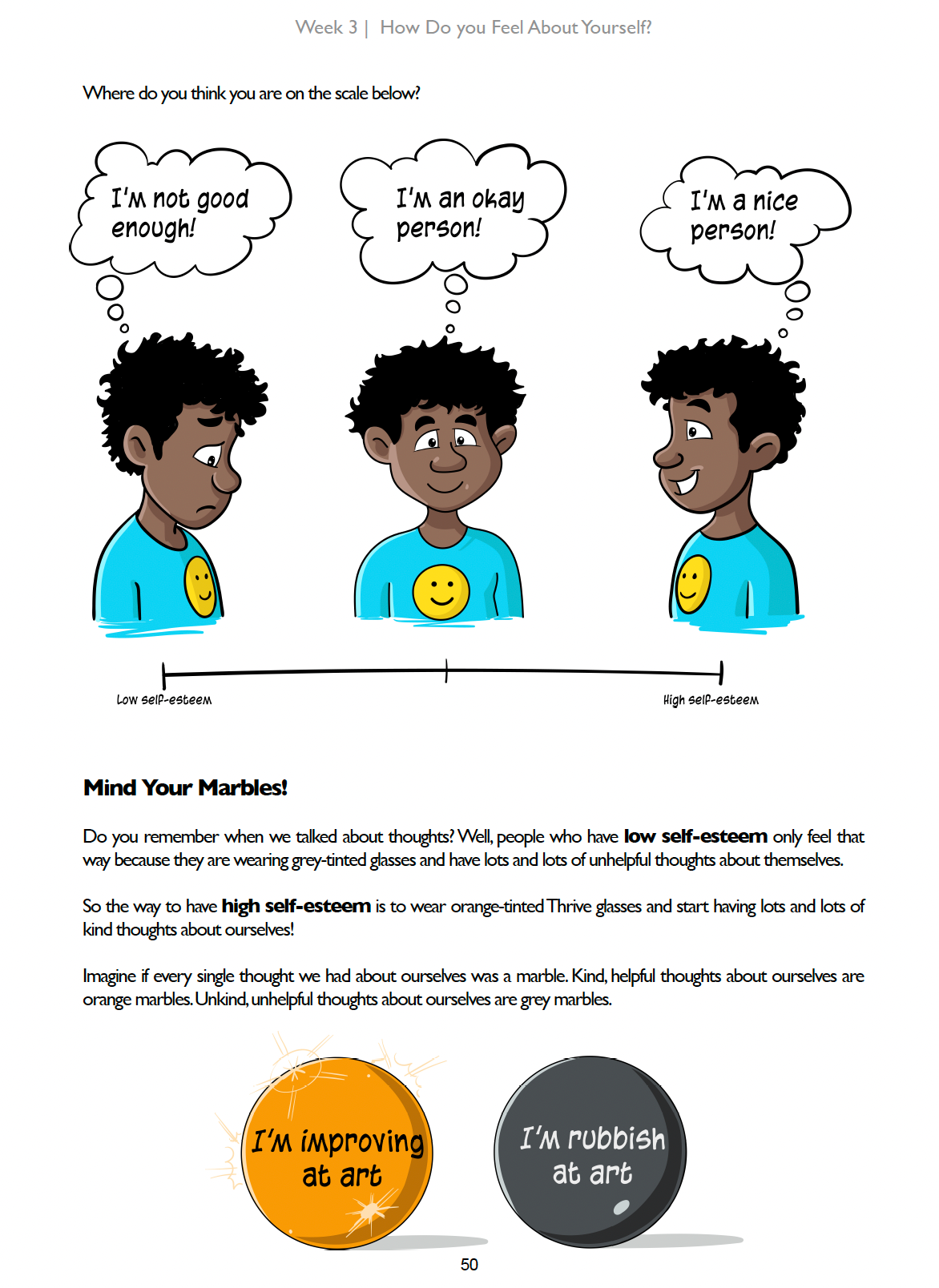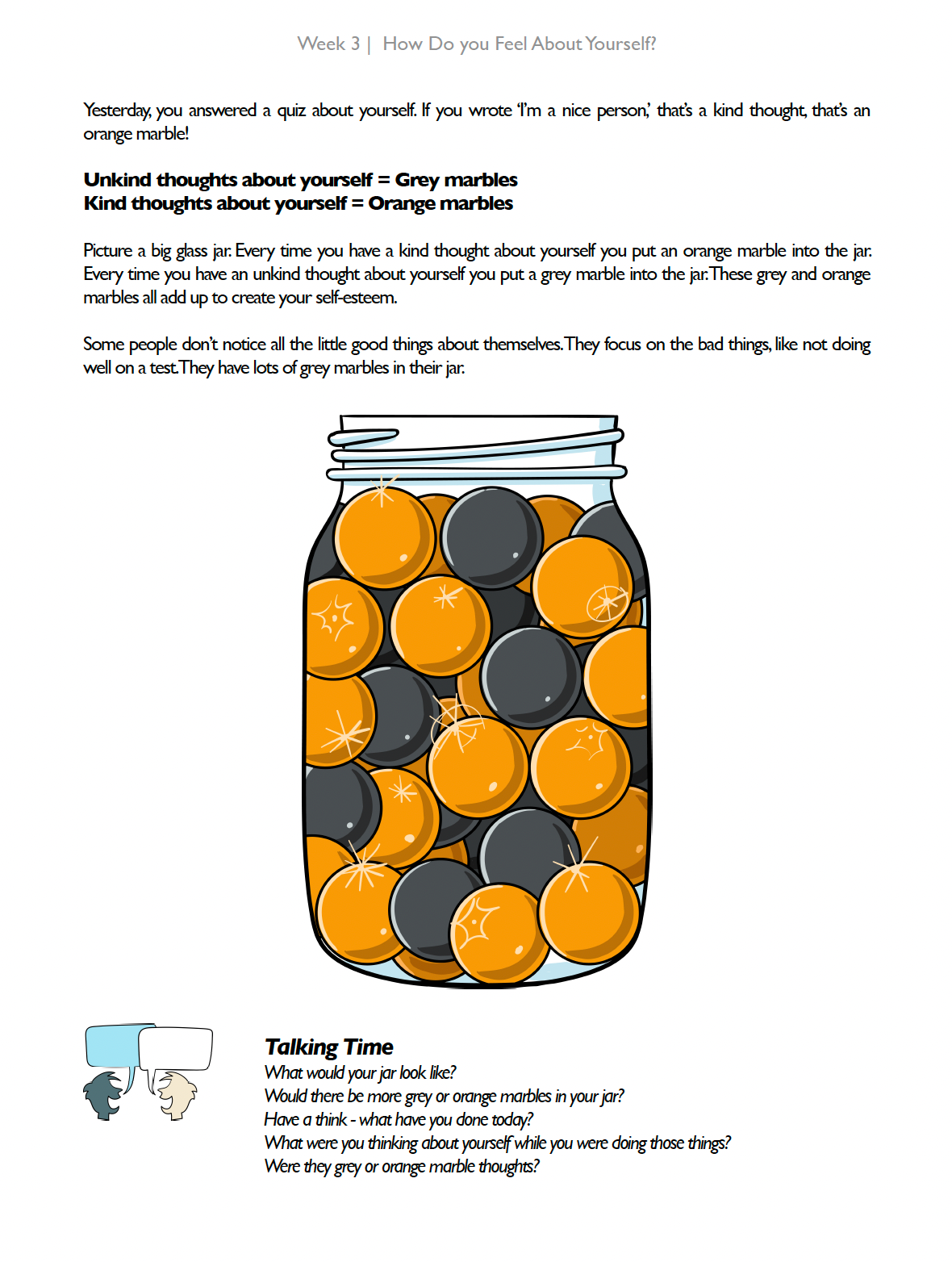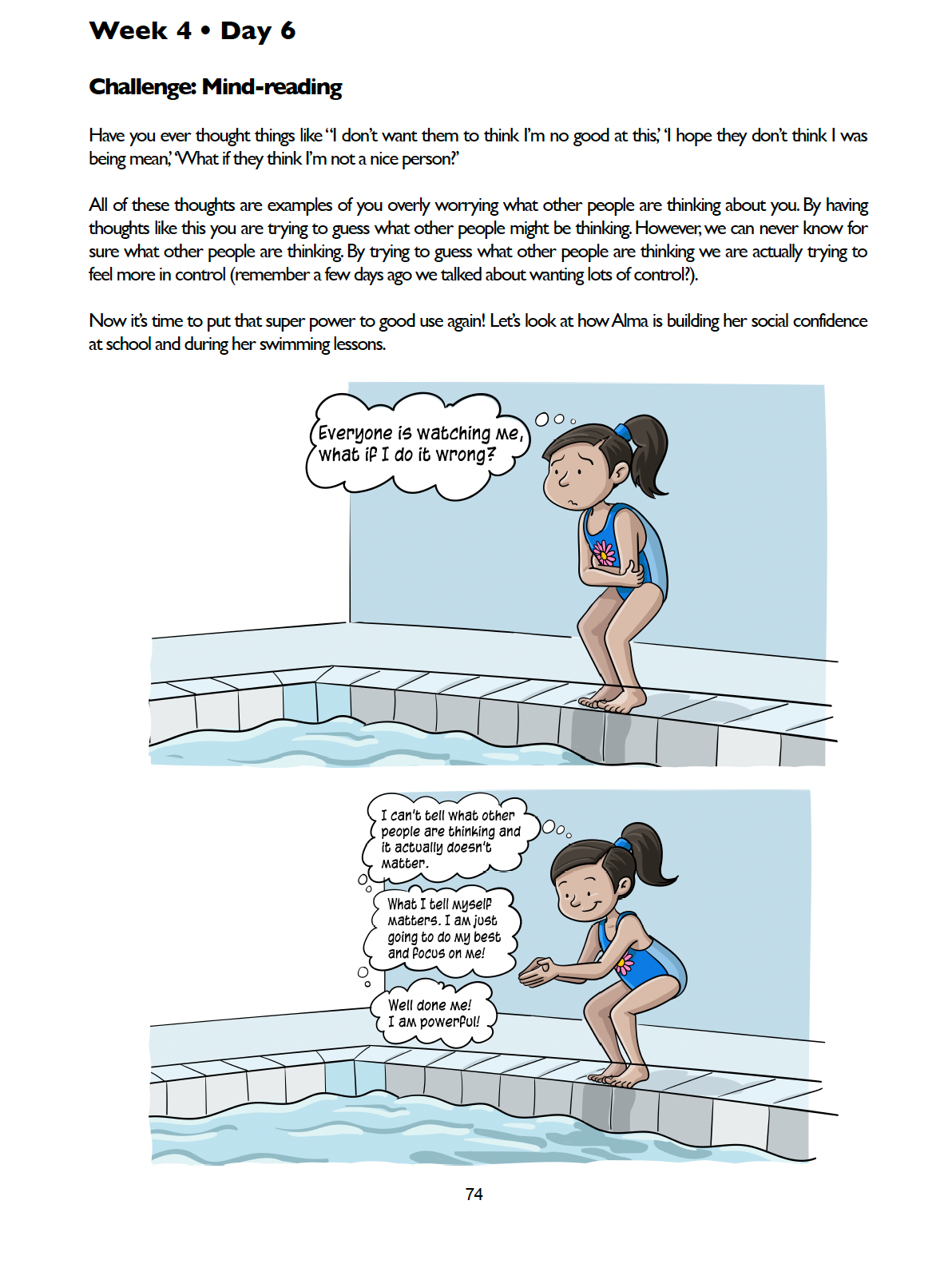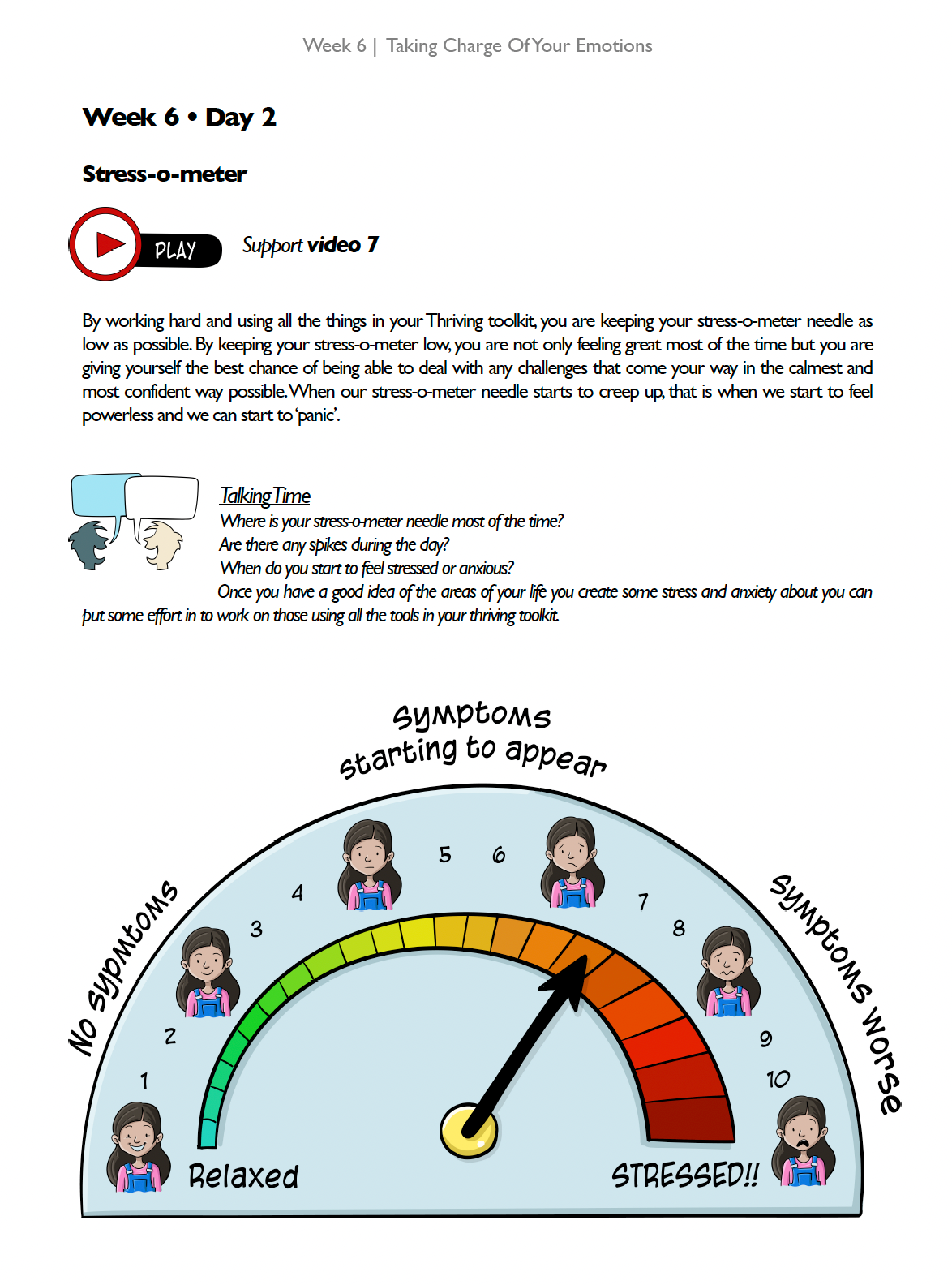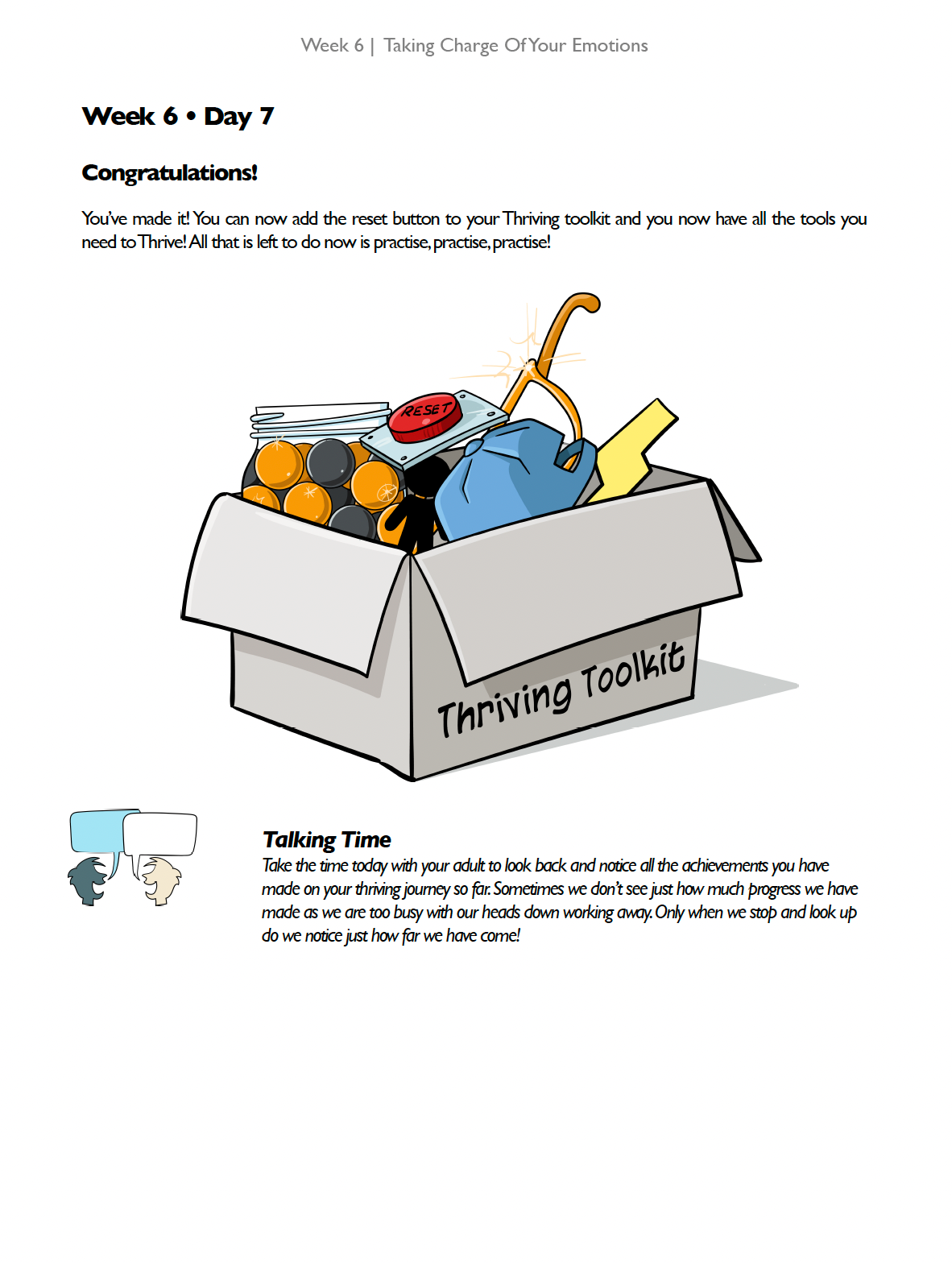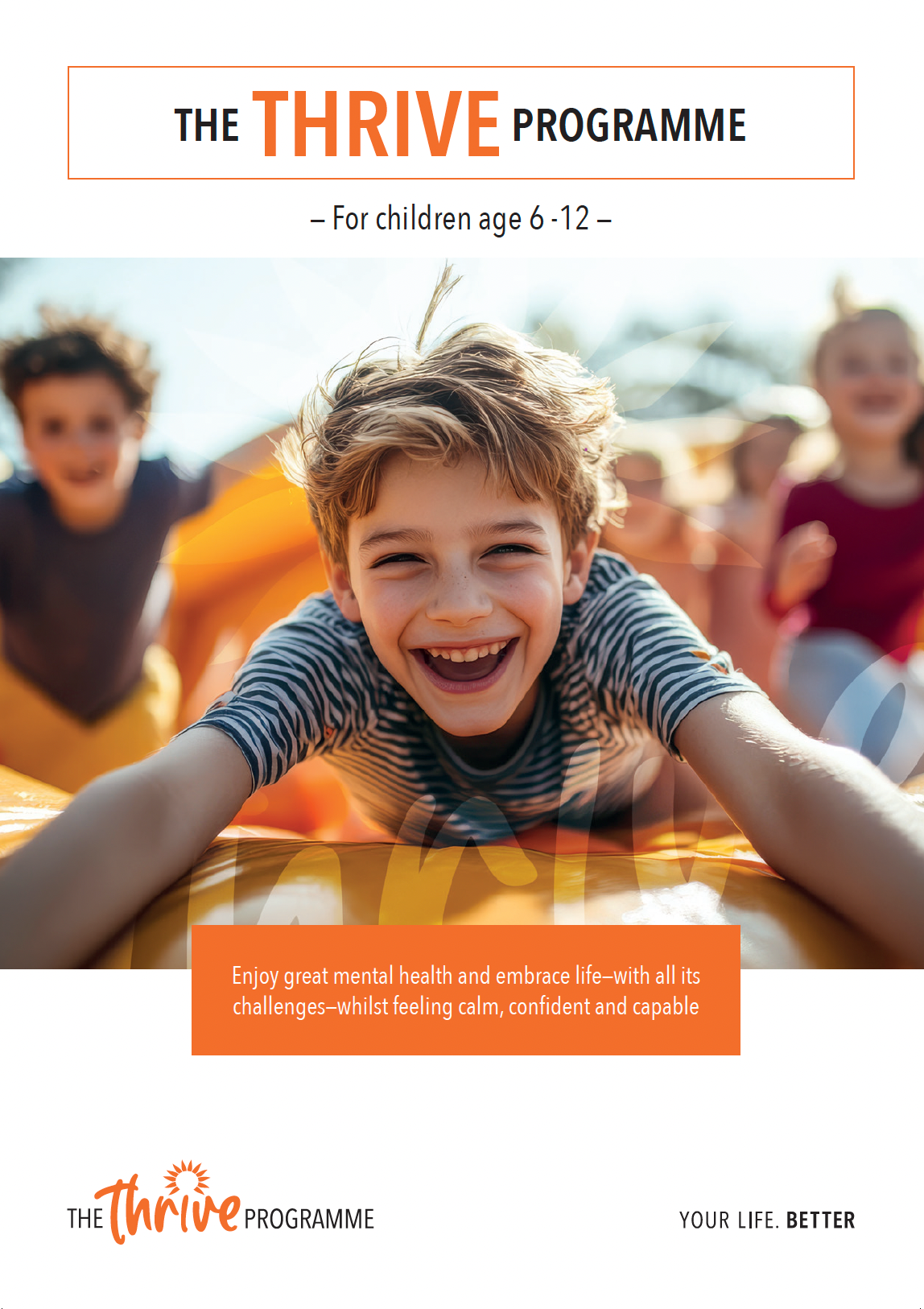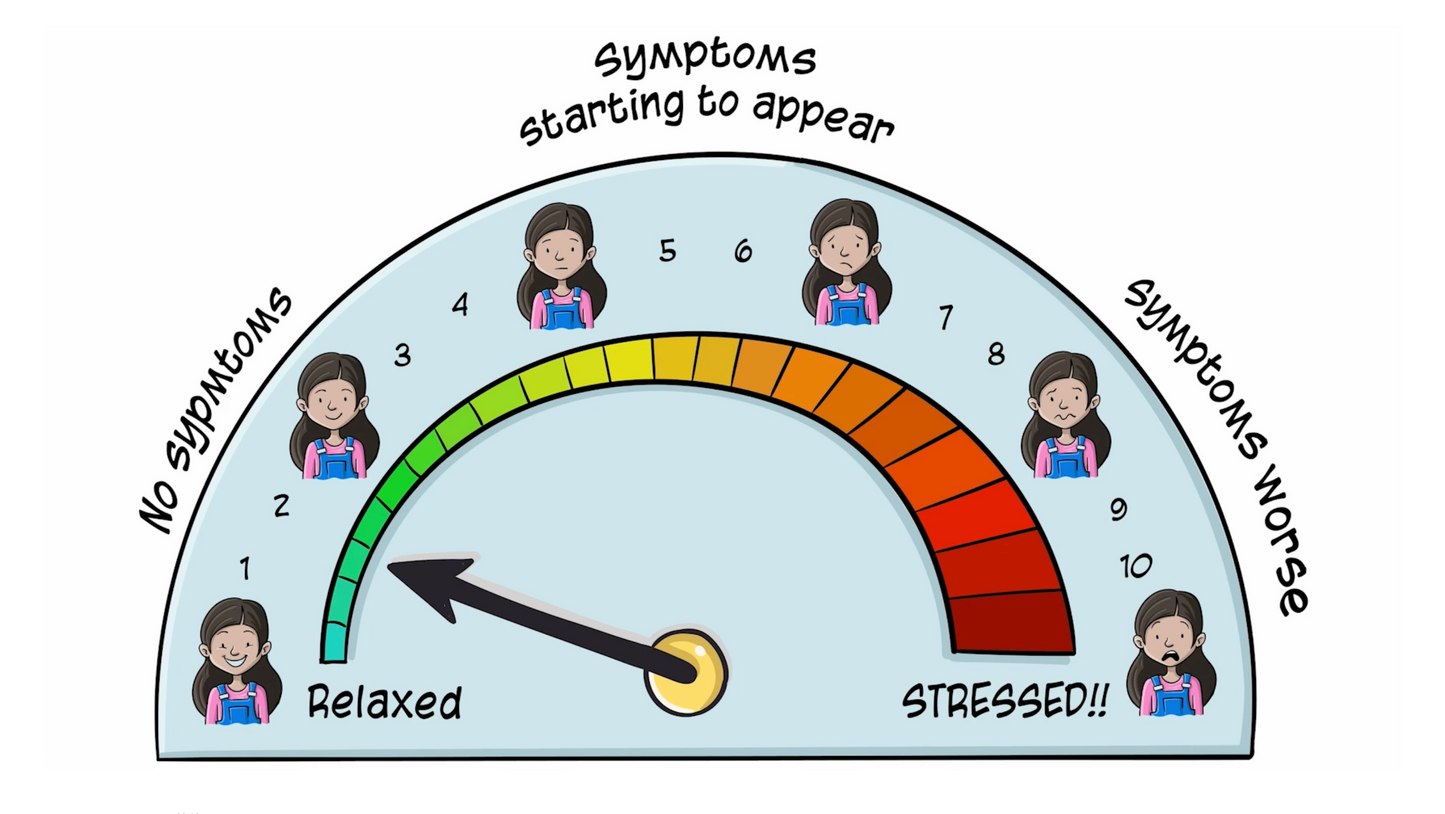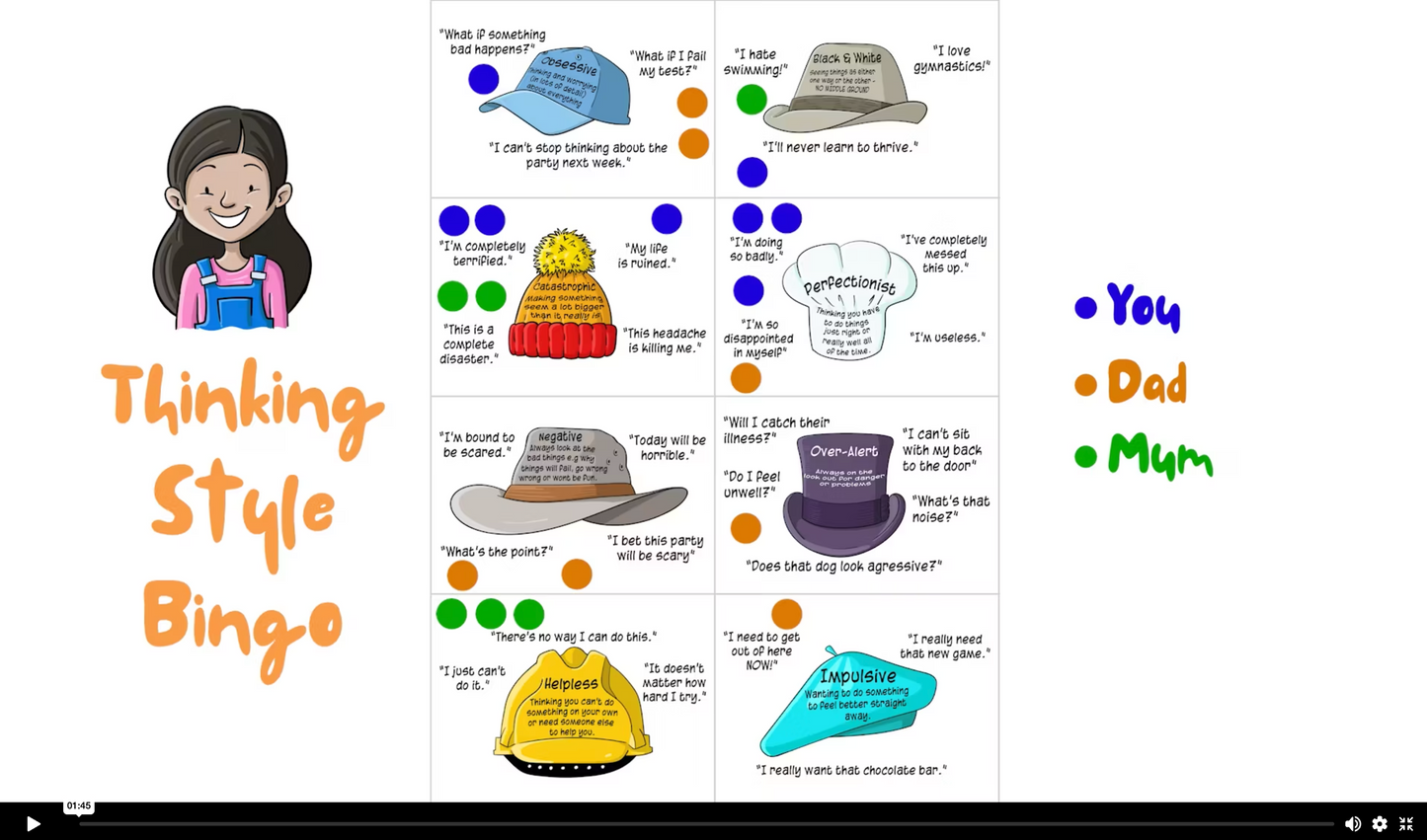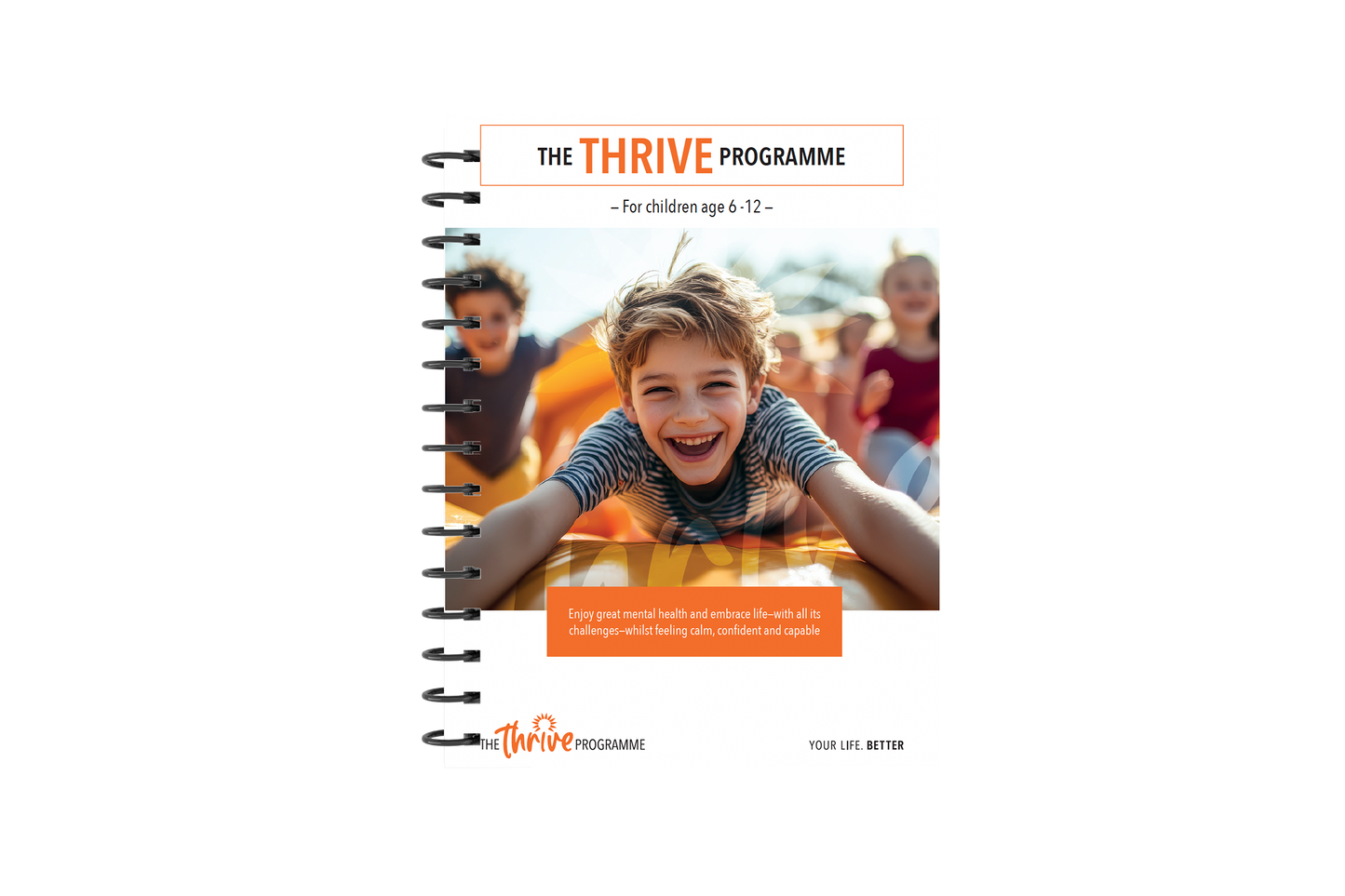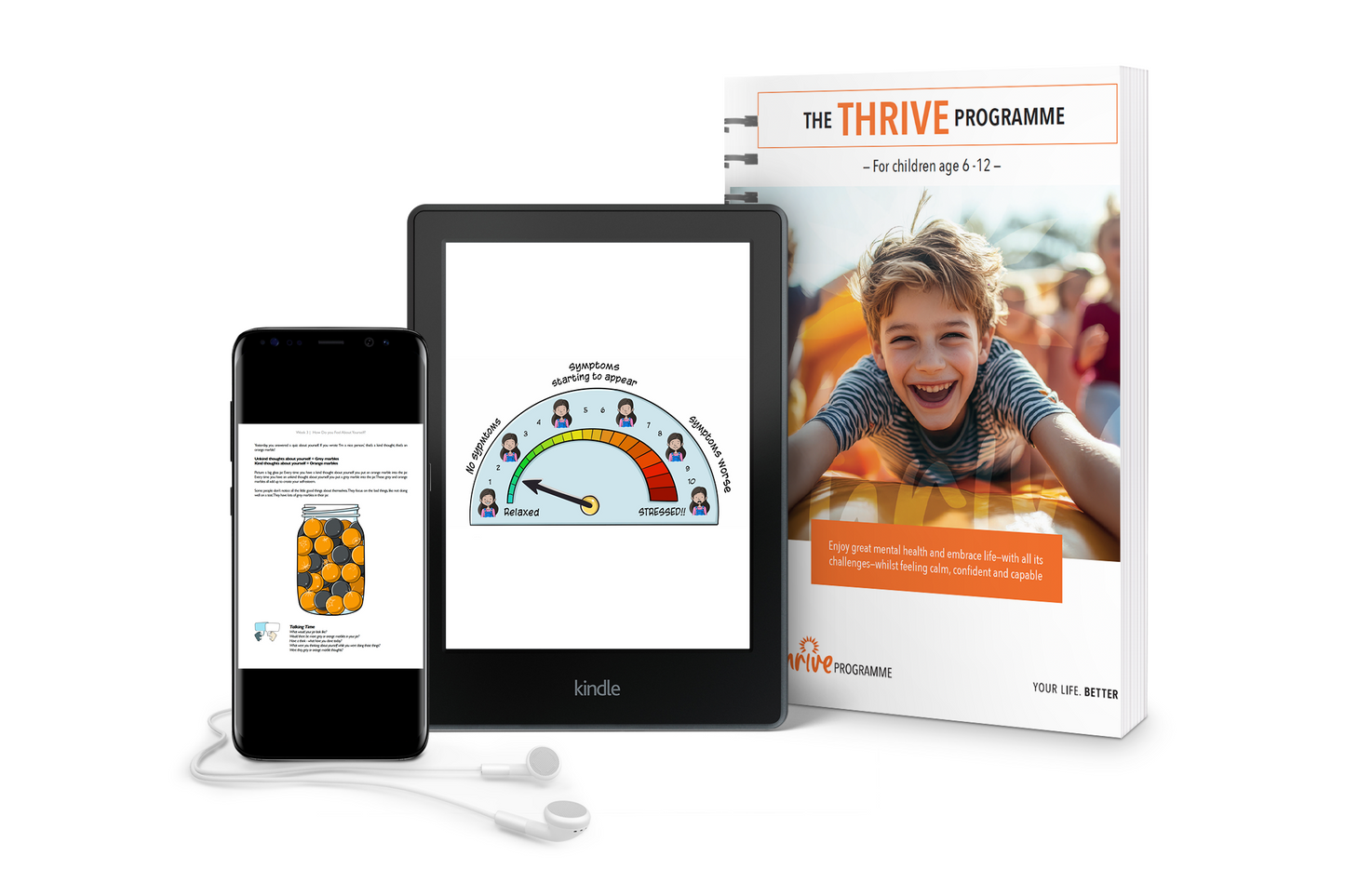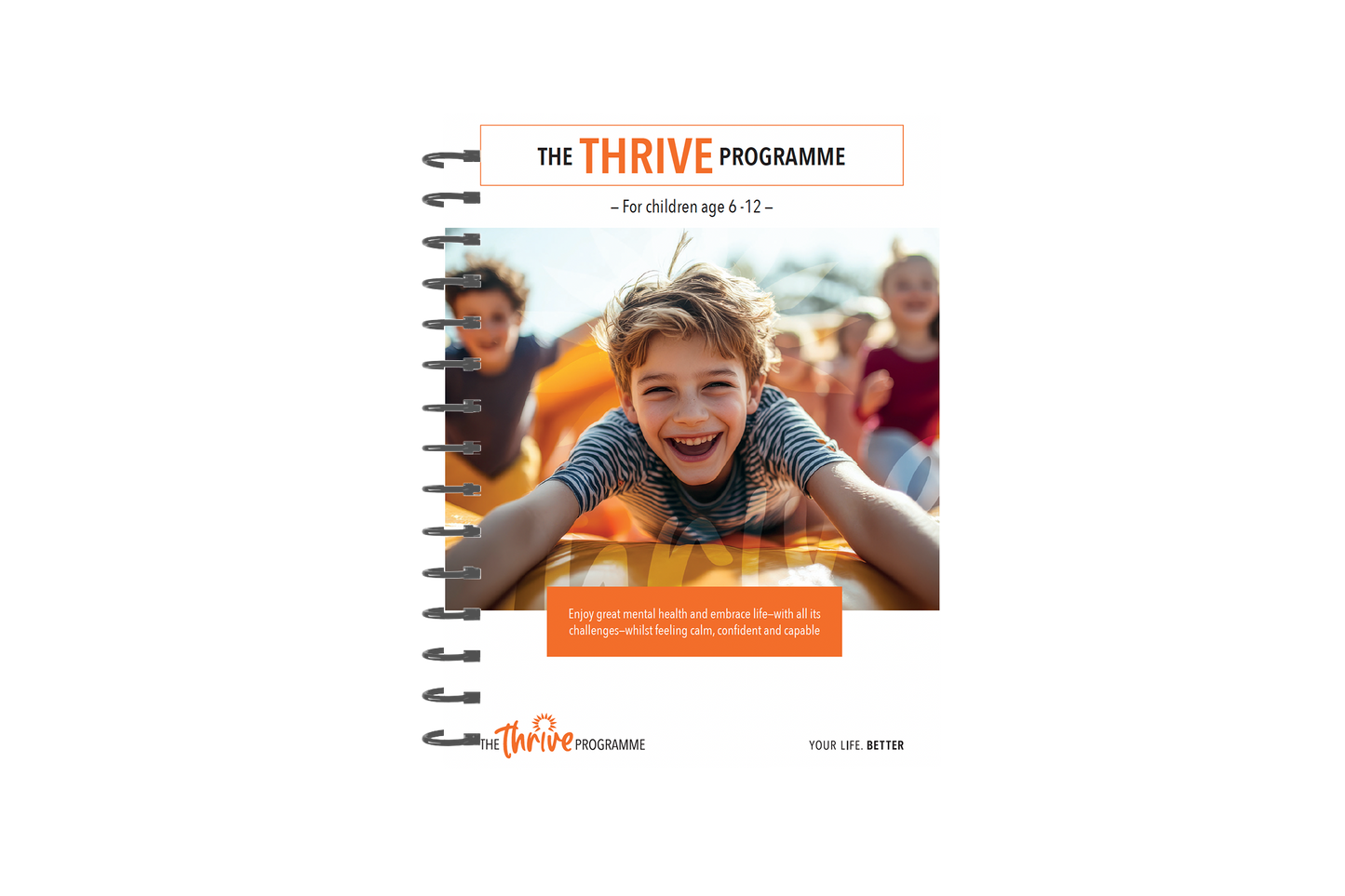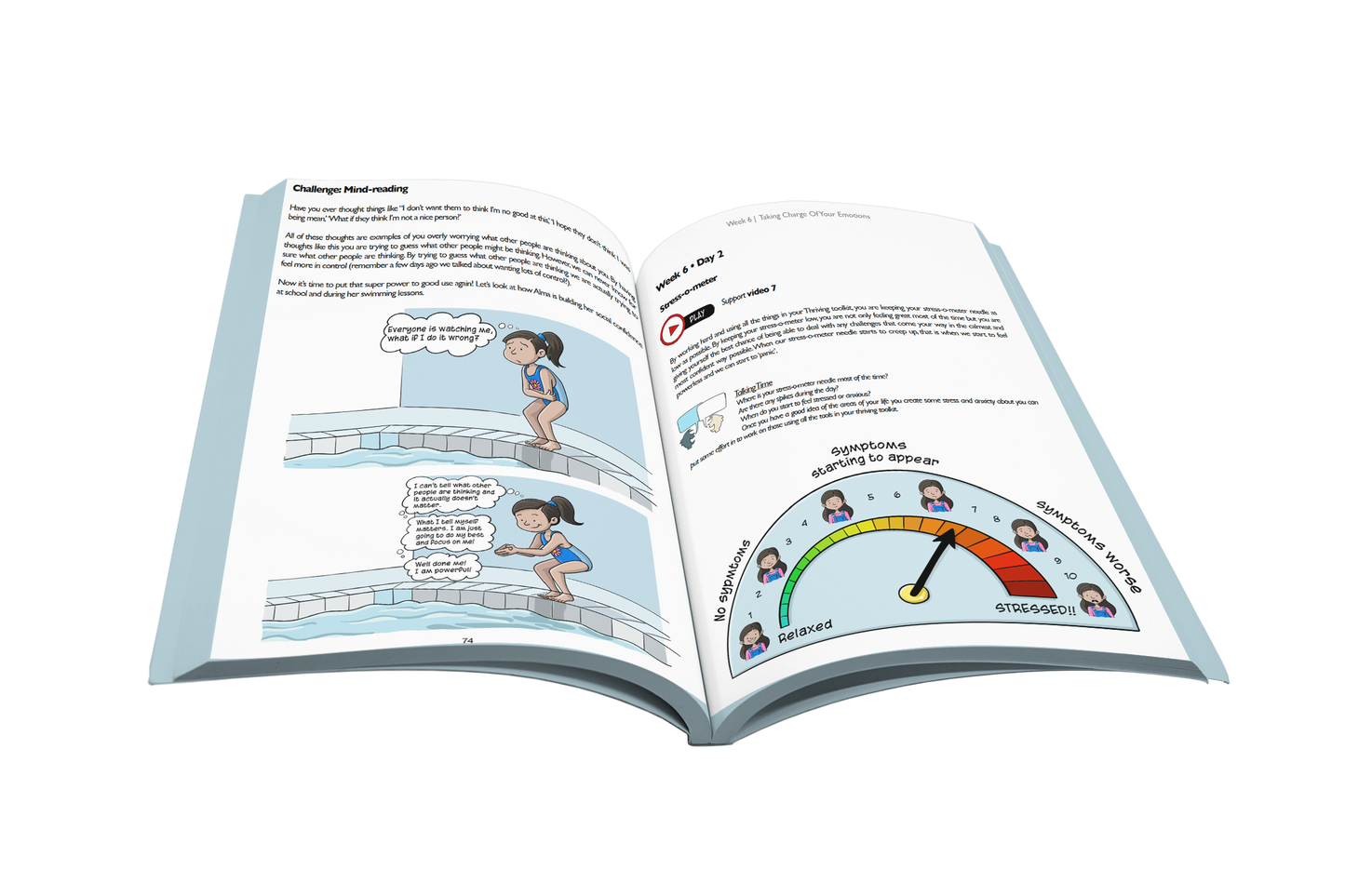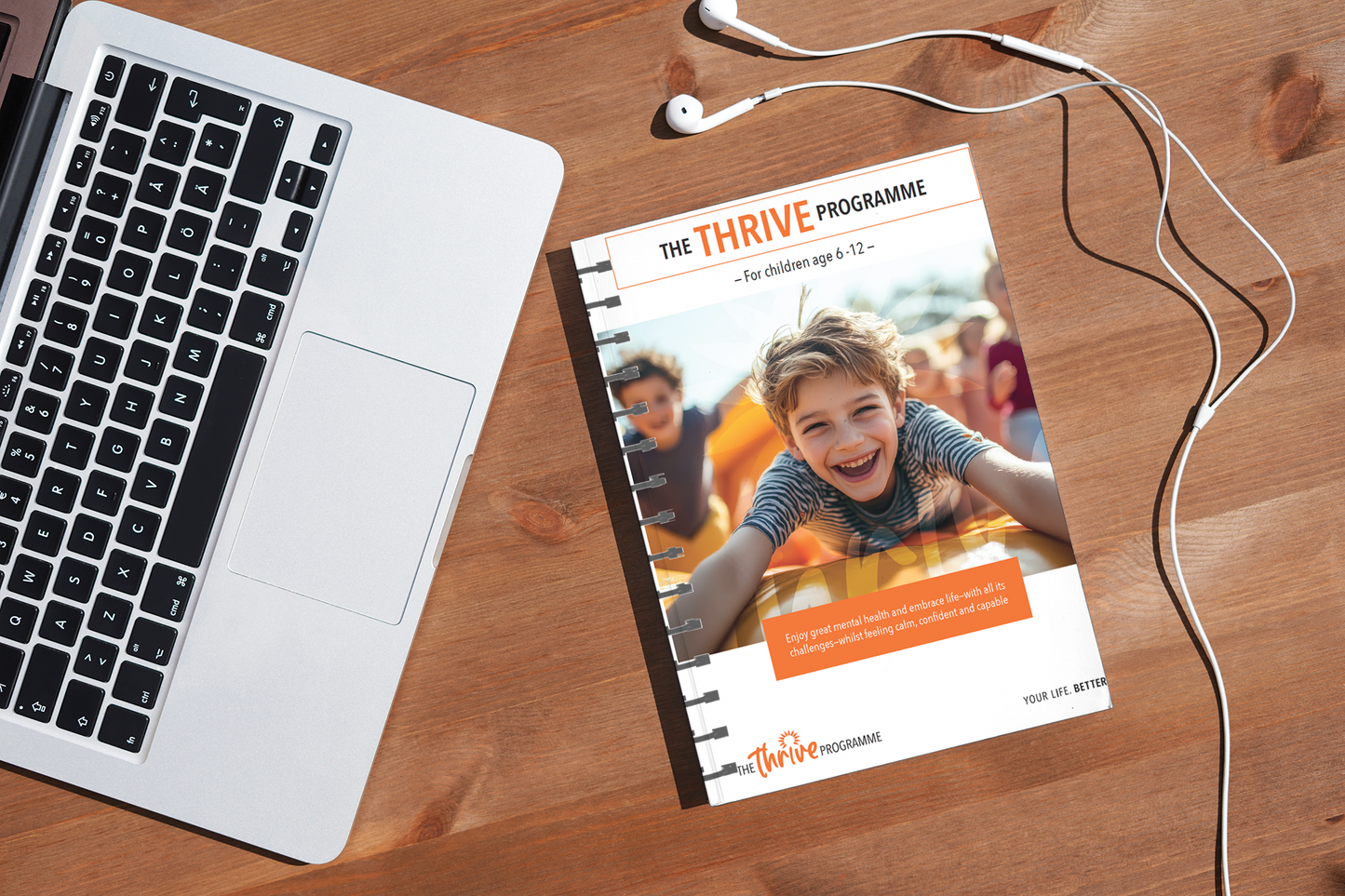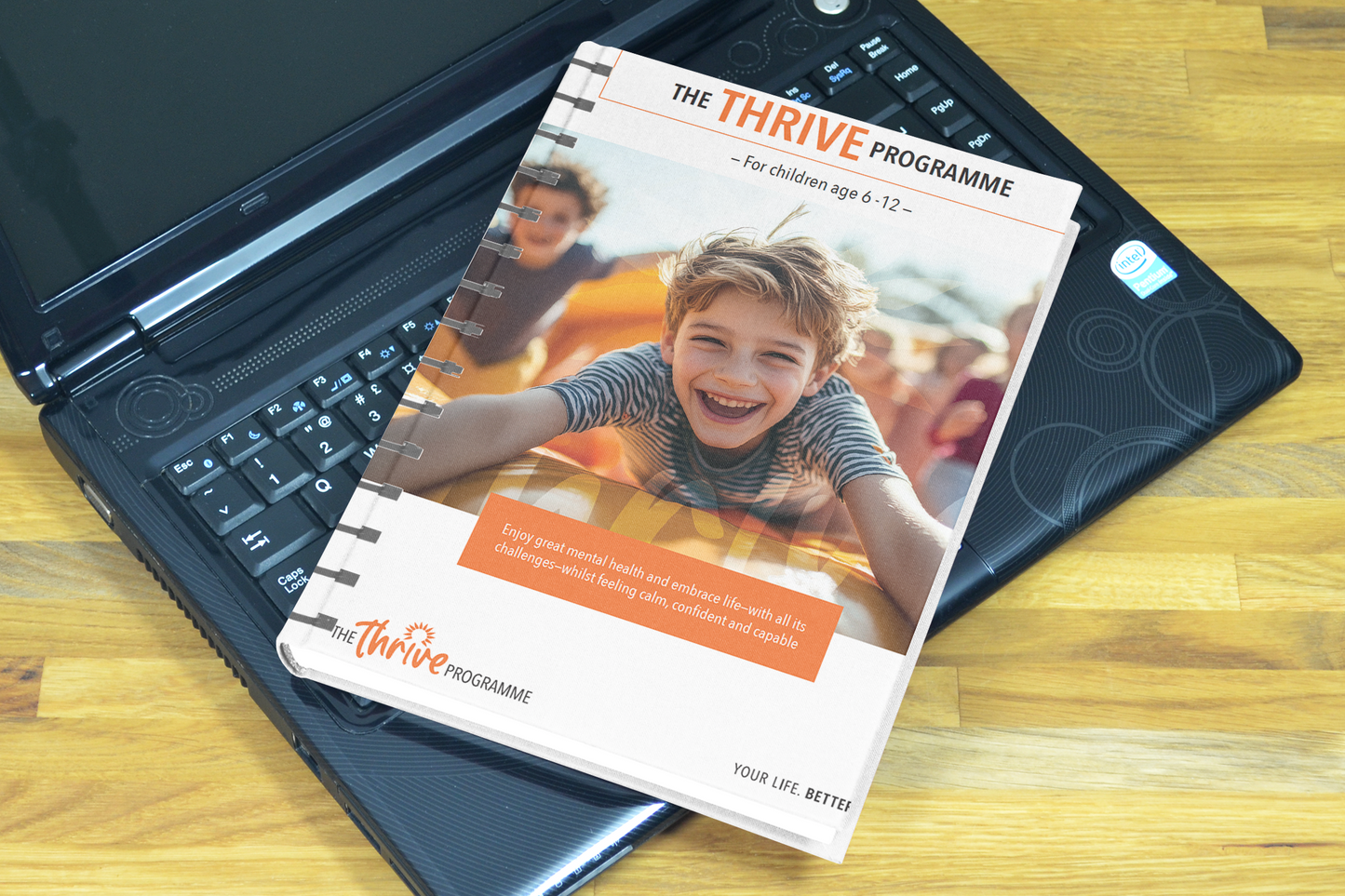Couldn't load pickup availability
What does the Children’s Programme include?
In order for the Child to get the most from this programme, it is essential that a parent/guardian/teacher works through it with them, in order that they can best support them and embed the learning. For this reason, the Children's Programme is only sold with an accompanying Adult version. The child will work through their workbook, alongside the adult working through their manual. It is imperative that the adult read, learn and understand all the concepts within the programme to assist their child with theirs.
The Children's Programme therefore contains:
- The Thrive Programme Workbook for Children AND The Thrive Programme Manual for Adults*
- Online 17-page TQ Assessment to track your progress (for the adult)
- 13+ Support Videos for you (the adult) to watch alongside reading the manual
- 9 specifically targeted support videos for your child to help guide them throughout
- Weekly emails to help motivate your journey, full of top tips
*The Child's Workbook is only available in paperback, but the adult's Manual can be either paperback or online
The Thrive Programme for Children
The Thrive Programme is an evidence-based self-help programme that teaches people how to build mental resilience and self-efficacy - in short, it teaches people how to thrive. Built upon clinical experience, research from the fields of neuroscience and positive psychology and feedback from 60,000+ participants, it teaches people the understanding and skills they need in order to overcome mental health issues, build self-esteem and self-belief.
The programme is accessible to all ages, is available in several different languages.
Each version of the programme includes a manual, support videos, and optional coaching for additional support. Accessible to all, it is used by individuals all over the world, as well as in many Schools, organizations, businesses, sports clubs, and military services.
What does it mean ‘to thrive’?
A plant or animal is said to be ‘thriving’ when it is doing the very best it can, despite whatever hardships it may be facing. Much like a sunflower that continually turns to face the sun, for humans it is also an active process… thriving is what you are doing everyday to make the best of each day. Thriving requires a specific skill-set, and that's what this programme teaches.
In order to really thrive, a person must be confident, believe in themself, be able to regulate their emotions, know how to be positive and happy, have the skills to make friends easily, be able to 'problem-solve' stressful situations and have the ability to cope when facing challenges.
Build Great Mental Health
Mental health issues often feel like they happen 'to' you, but in reality, they result from how you react to situations. For example, someone with a spider phobia feels anxious because of their reaction to the spider, not the spider itself. The same applies to stress, anxiety, depression, phobias and low self-esteem—these symptoms and issues are all created by the way in which you are responding to the pressures and hurdles of life.
Our programme empowers children with the skills to change how they react and respond to situations, experiences and the challenges they face. As they build more robust mental health and learn to thrive, their symptoms will start to fade, and they'll begin to exercise more agency over their life.
How does it work?
Mental health issues often feel like they happen 'to' you, but in reality, they result from how you react to situations. For example, someone with a spider phobia feels anxious because of their reaction to the spider, not the spider itself. The same applies to stress, anxiety, depression, phobias and low self-esteem—these symptoms and issues are all created by the way in which you are responding to the pressures and hurdles of life.
Our programme empowers children with the skills to change how they react and respond to situations, experiences and the challenges they face. As they build more robust mental health and learn to thrive, their symptoms will start to fade, and they'll begin to exercise more agency over their life.
- Self-esteem
- Social confidence
- Autonomy
- Being positive
- Managing emotions
- Self-efficacy
- How you react to others
- Coping skills
If you have any questions please get in touch by emailing us here
Share
